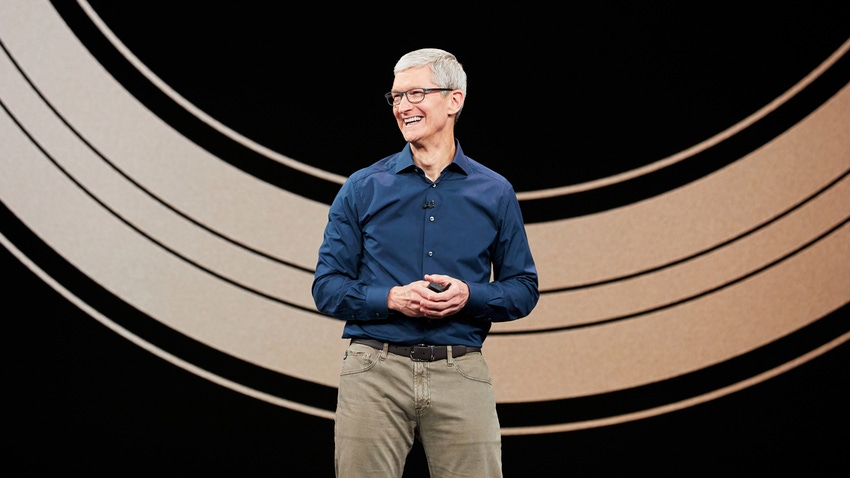Apple's China codependency
Beijing and Apple need each other in China's huge supply chain.

It was throwback Monday in Shanghai this week when Apple boss Tim Cook let the world know of his feelings for China.
"I love it here, I love the Chinese people," he told journalists. "It's so vibrant and so dynamic here."
That kind of over-the-top gushing was normal in the early years of this century, but it's an outlier today where the main sound from foreign CEOs is the door hitting them on the way out.
Apple is also noteworthy because, besides being one of the world's biggest companies, it's the most high-profile western ICT brand in China and still has a substantial China consumer business. It's certainly the only non-Chinese handset company with any kind of China footprint. Samsung might be number two in smartphones worldwide, but its China market share is a rounding error.
Even more important than Apple's market presence is its essential role as a pillar of China's supply chain. Visiting China for a series of meetings, including a CEO confab with Xi Jinping himself, Cook was quoted in the party publication Global Times as saying: "There's no supply chain in the world that's more critical to us than China."
China needs Apple
But it's not all about Apple. Having chased a lot of foreign tech firms away, and with the economy drifting and the US deciding it's not going to share its best technology with a strategic rival, China needs Apple as well.
Apart from being still hugely popular among consumers, the company brings enormous scale to the supply chain, directly or indirectly providing hundreds of thousands of jobs.
The American company has also won favor with Chinese officials through its willingness to accommodate their exacting security requirements. A New York Times investigation found Apple had removed "tens of thousands of apps" from its Chinese App Store, including foreign news outlets, gay dating services, encrypted messaging and Dalai Lama apps. Additionally, Apple has agreed to store its China customer data on state-controlled servers, effectively ceding control of how that data is managed and who has access to it.
This is in contrast to its official public position, which advocates for respect for human rights and the protection of individual privacy.
But Apple's good standing in Beijing doesn't immunize it from the tide of security rules and practices targeting foreign firms, such as the government campaign to reduce the use of iPhones by state employees. These new rules come just as the market has begun to turn away from Apple, with sales down around 24% in the first six weeks of the year.
This is partly because of high volume in 2023, but also because of the resurgence of Huawei and increasing price competition, Counterpoint Research says. It follows a 13% drop in sales revenue in the fourth quarter to $21 billion, or 17% of total revenue.
Europe and North America are bigger, but Apple's co-dependency with China means it's there to stay.
Read more about:
AsiaAbout the Author(s)
You May Also Like




_International_Software_Products.jpeg?width=300&auto=webp&quality=80&disable=upscale)







